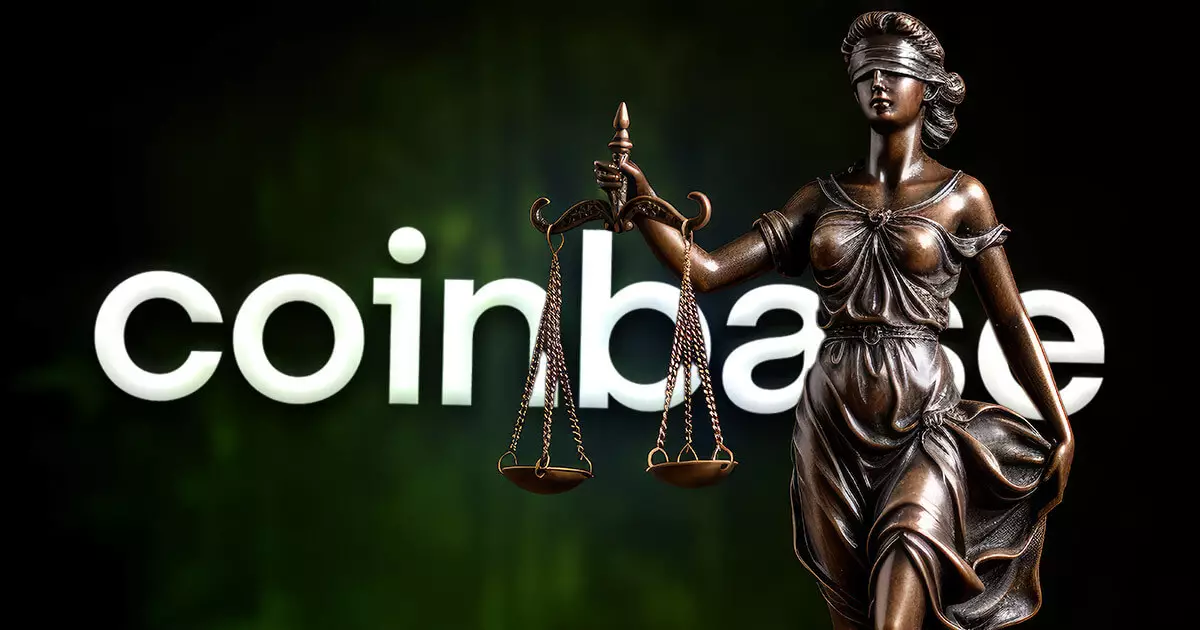In a significant move that could reshape the competitive landscape of the cryptocurrency market, BiT Global, closely associated with Justin Sun, has launched a lawsuit against Coinbase, the largest cryptocurrency exchange in the United States. The court filing, dated December 13, sheds light on serious allegations directed at Coinbase regarding its handling of wrapped Bitcoin (WBTC), specifically accusing it of engaging in anti-competitive behavior. The core of the dispute lies in BiT Global’s assertion that Coinbase deliberately delisted WBTC from its platform to promote its own wrapped Bitcoin offering, Coinbase Wrapped Bitcoin (cbBTC). This situation raises fundamental questions about market fairness and the ethical responsibilities of dominant players in the crypto space.
BiT Global’s lawsuit emphasizes that Coinbase’s removal of WBTC isn’t merely a business decision based on listing standards; rather, it is portrayed as a strategic maneuver to eliminate competition and bolster its own revenue streams. The complaint alleges that Coinbase leveraged its market dominance to suppress alternatives, thereby violating antitrust laws. This raises crucial concerns for the wider cryptocurrency community, as such centralized tactics could deter innovation and limit users’ choices in a landscape that is meant to champion decentralization.
In an intriguing twist, the court filing further stipulates that Coinbase’s announcement regarding waiving wrapping and unwrapping fees is merely a façade. BiT Global strongly suggests that these fees are poised to materialize after WBTC has been displaced, indicating a premeditated strategy to bolster cbBTC’s market position at the expense of competition. This contention underscores the inherent tension in the cryptocurrency ecosystem between competing products and the purported ethos of decentralization.
Responding to the lawsuit, Coinbase maintained that the delisting of WBTC was justified based on specific listing standards, yet BiT Global strongly disputes this reasoning. The lawsuit cites Coinbase’s recent decision to include certain meme coins, such as PEPE and MOG, as indicative of its selective application of these “standards.” This juxtaposition calls into question the credibility of Coinbase’s defense, suggesting that the delisting of WBTC may not have been driven by quality metrics but rather by a desire to monopolize the wrapped Bitcoin market.
This turn of events reflects broader challenges faced by wrapped Bitcoin products. Notably, BiT Global emerged as a primary custodian for WBTC after BitGo’s decision to distribute custody among various entities, including BiT Global. This transition fostered ambiguity around the long-term viability of WBTC, leading key decentralized finance (DeFi) protocols like MakerDAO and Aave to reassess their stance on using WBTC as collateral.
The implications of this lawsuit extend far beyond the immediate players involved. BiT Global’s efforts to reinstate WBTC’s trading on the Coinbase platform may serve to rally support for decentralized assets against centralized control. This aligns with a growing sentiment within the DeFi community that prioritizes inclusivity and competition. The fight against perceived monopolistic practices is crucial for the longevity and integrity of cryptocurrency innovation.
The competition initiated by Coinbase’s launch of cbBTC, which has rapidly gained traction, culminates in a market where consumer choice is vital. With a market cap of approximately $2 billion, cbBTC has quickly climbed to become the second-largest wrapped Bitcoin product after WBTC. Nonetheless, despite having a robust $13.7 billion market capitalization, WBTC has faced difficulties, notably a reduction in its token supply by over 20,000 BTC due to its uncertain standing following Justin Sun’s involvement with BiT Global.
As the legal proceedings progress, this case could potentially set a noteworthy precedent for how cryptocurrency companies engage with one another and navigate competitive dynamics in a traditionally decentralized environment. A victory for BiT Global might not only restore WBTC’s presence on Coinbase but also reinforce the principles of fair competition and innovation that many in the cryptocurrency space hold dear. Ultimately, the outcome of this lawsuit could delineate the path forward for wrapped assets and the broader implications for the entire cryptocurrency market. The community awaits the developments with bated breath, keenly aware that the integrity of this rapidly evolving landscape depends significantly on the principles established today.



















Leave a Reply